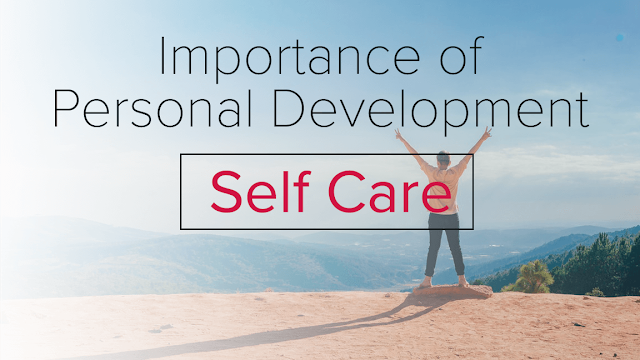A self-care program can help you enhance your health and well-being manage your stress and maintain a professional ethos as you work with young people. Learn to identify activities and practices that support your well-being as a professional and help you maintain positive self-care in the long term.
 | |
| personal development activities for work |
Aspects of self-care.
Self-care is a personal matter. Everyone's approach will be different. It's about what you do both at work and outside of work to take care of your overall health so that you can meet your personal and professional commitments (learn more). Here are the different aspects of self-care And example strategies that others find useful:
- Workplace or professional
- Physical
- Psychological
- Emotional
- Spiritual
- Relationships.
NOTE: The following activities and suggestions are for informational purposes only and it is important to choose activities that make sense for you and your own goals.
After discovering the different aspects of self-care complete the self-care planning activities below.
Workplace or professional self-care.
This involves activities that help you consistently work at the level of professionalism you expect. E.g:
- Regularly supervise or consult more experienced colleagues
- set up a peer-support group
- Strict boundaries between clients/students and staff
- read professional journals
- Participate in a professional development program.
Physical self-care.
Activities that help you stay healthy and have enough energy to complete your work and personal commitments.
- Develop a regular sleep routine.
- Aim for a healthy diet.
- Take lunch breaks.
- Go for a walk at lunchtime.
- Take your dog for a walk after work.
- Use your sick leave.
- Do some exercise before/after work regularly.
Psychological self-care.
Activities to help you clear your mind and be able to intellectually meet the professional challenges of your work and personal life.
- Keep a reflective journal.
- Seek out and engage in external oversight or regularly consult with more experienced colleagues.
- Engage with a non-work hobby.
- Turn off your email and work phone outside of business hours.
- Make time for relaxation.
- Spend time interacting with positive friends and family.
Emotional self-care.
Allow yourself to experience various emotions safely.
- Develop friendships that are supportive.
- Write down three good things you do every day.
- Do exercise and drink coffee together after training.
- Go to the movies or do other things you enjoy.
- Continue to meet with parents' groups or other social groups.
- Talk to your friends about how you cope with the demands of work and life.
Spiritual self-care.
This involves a sense of perspective that goes beyond everyday life.
- Do reflective practices such as meditation.
- Go on bush walks.
- Go to church/mosque/temple.
- Do yoga.
- Reflect with a close friend for support.
Relationship self-care.
It's about maintaining healthy supportive relationships and making sure your relationships are diverse so that you're not just connected to staff.
- Prioritize intimacy in your life such as your partner's family and children.
- Attend special events for your family and friends.
- Go to and from get off work on time every day.
Create your own self-care plan.
For each of the above categories please select at least one strategy or activity that you can do. You may notice overlapping areas between these categories. It is important to develop a self-care plan that is holistic and individual to you.
- Download the Self-Care Plan Template or create your own.
- Fill out your self-care plan with your favorite activitiesand support your health. Here are some suggestions.
- Put it where you can see it every day. Staying visible will help you think about and commit to a planned strategy. You can also share it with your supervisor colleagues friends and family so they can support your actions.
- Stick to your plan and practice activities regularly.Just as an athlete doesn't get fit just by "thinking" about fitness as a worker you can't expect to perform effectively without having a holistic plan for your health.
- Reassess your progress after a monthThen three months. Planning can take over a month to develop a habit so review and implement your own self-care plan. Come back after a while and complete the self-care assessment again to see how you are progressing with your new habit.
A word of caution.
Once you have a self-care plan in place it's important to ask yourself "what might be blocking you?" What can you do to remove those blocks? If you can't remove them you may need to adjust your strategy. Think honestly about whether any of your strategies are negative and how You can adjust your plan to avoid or minimize their impact.
It can be challenging if your workplace does not support self-care activities but there are still things you can do outside of work to help yourself. It's important that your plan resonates with you and that you can start implementing it now.
